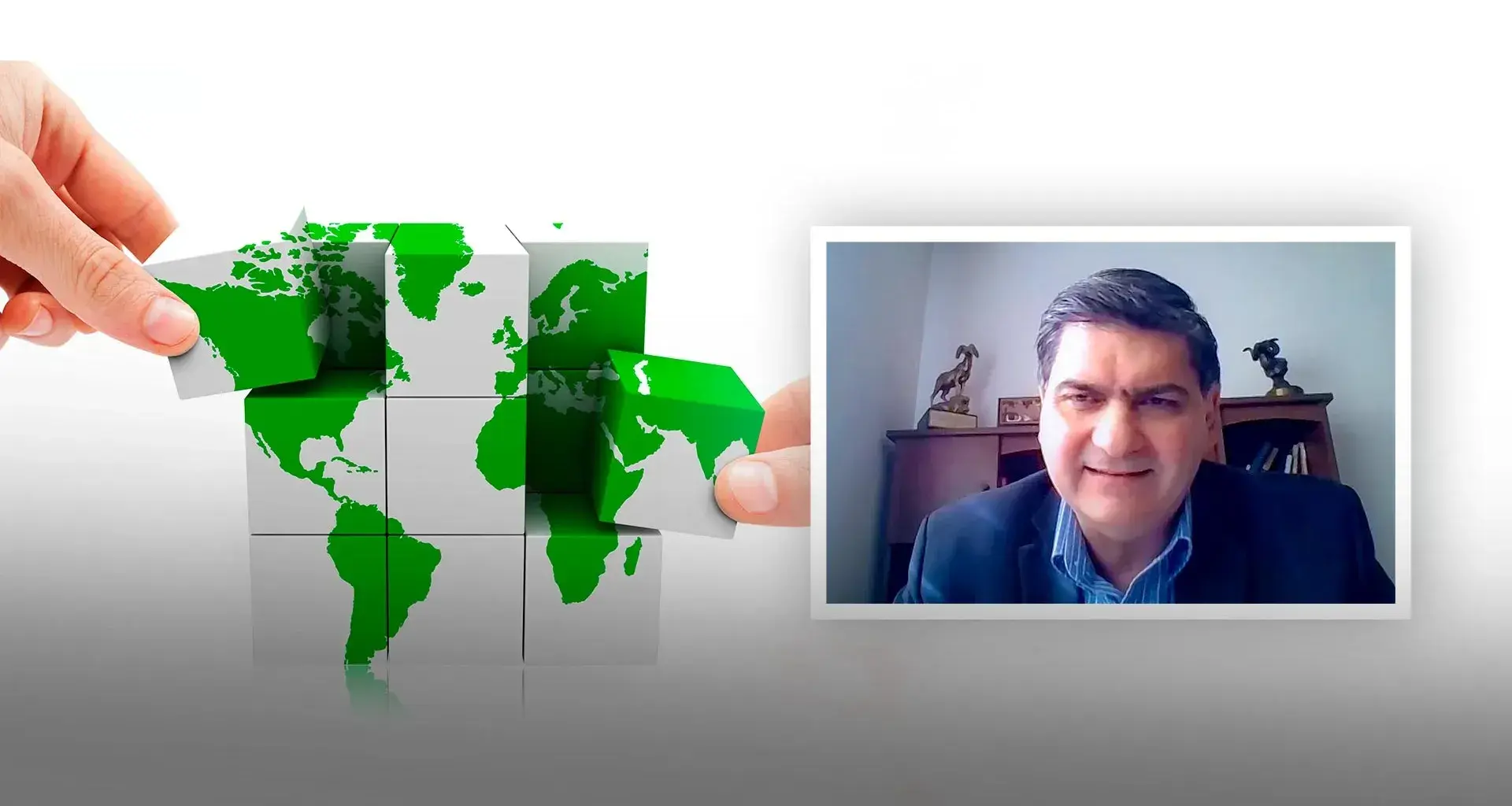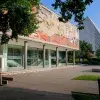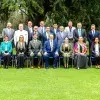Universities can help adapt to the new normal in the post-covid era by developing international collaboration between themselves, so they can share best practices and research.
This was one of the messages shared by David Garza, Rector and Executive President of Tec de Monterrey, in his talk at the World Academic Summit, organized by the evaluation organization Times Higher Education (THE) in partnership with Universitas 21, an international network of universities.
“International collaboration allows us to learn from each other, to develop synergies. That is the key to facing this crisis,” Garza shared.
At the virtual panel “Thriving Post Covid: Re-imagining Global University Collaboration”, Garza said that it has been essential for the Tec to work with other institutions and international university networks.
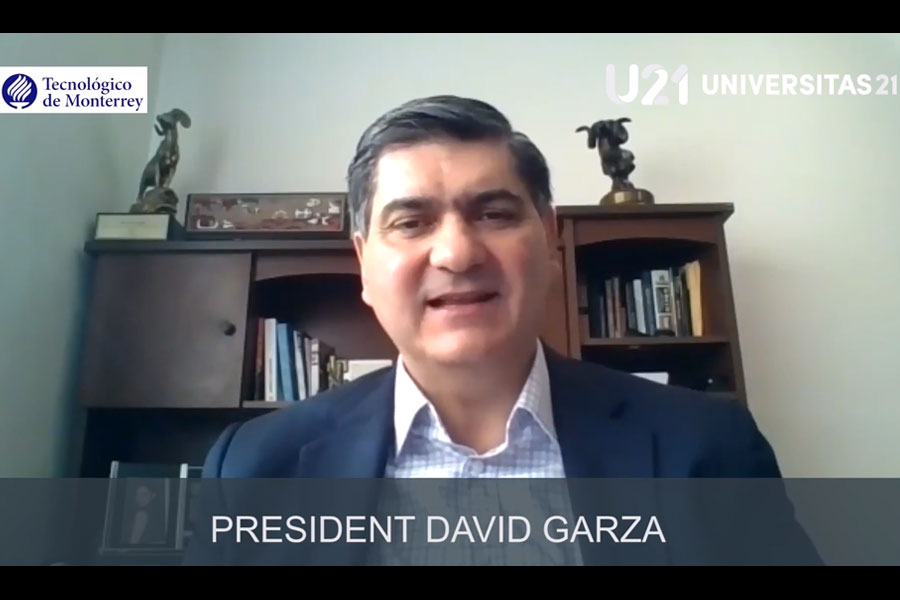
“We have collaborated with universities to try and mitigate the effects of the pandemic (through) initiatives that focus on the health and wellbeing of our students and communities.”
He noted that partnerships between universities will become more relevant in the new normal and are an opportunity to generate a mindset which will help create a better world.
Luc Sels, Rector of KU Leuven; Eng Chye Tan, President of the National University of Singapore; and Shearer West, President and Vice Chancellor of the University of Nottingham, also participated in the panel discussion.
The discussion was moderated by Anton Muscatelli, Principal and Vice Chancellor of the University of Glasgow.
The 2020 World Academic Summit (THE) events were scheduled for September 1 and 2 at UK times.
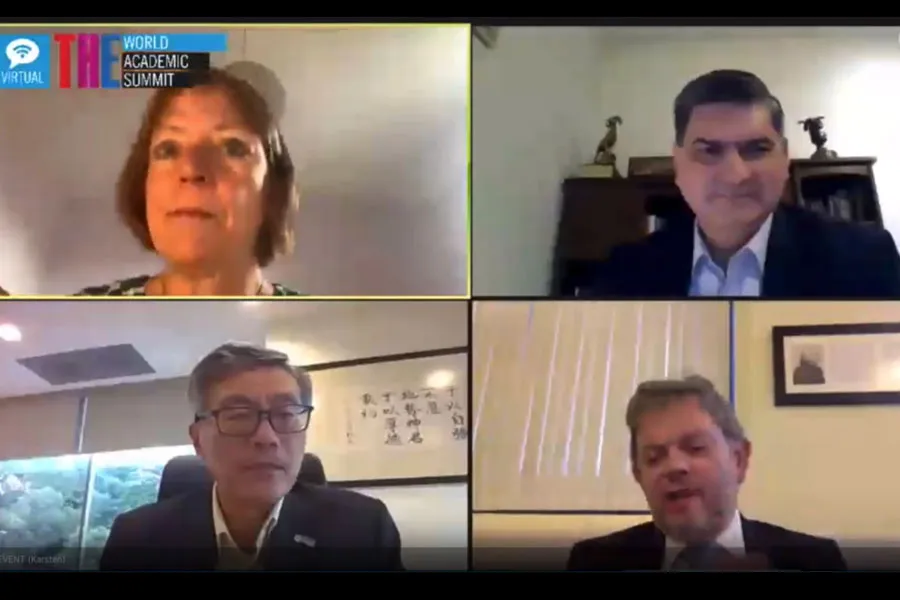
THE TEC: AN INTERFACE FOR INTERNATIONAL AID
Through such international collaborations, Tec has also been able to help higher education institutions located in Mexico and Latin America cope with the COVID-19 crisis.
“The Tec is also an interface or an exchange for greater knowledge and experience from abroad which universities in our countries need.
“For example, when we had to implement an emergency remote teaching strategy. We pooled resources from our colleagues around the world, and then made them available to both Mexican and Latin American institutions,” he commented.
Garza stressed that it is necessary to develop synergies which help to generate a global mindset in graduates.
“This will help the higher education sector remain global and make it more resilient. Collaboration will not only help us stay afloat, but also look towards the challenges and opportunities that lie ahead,” he added.
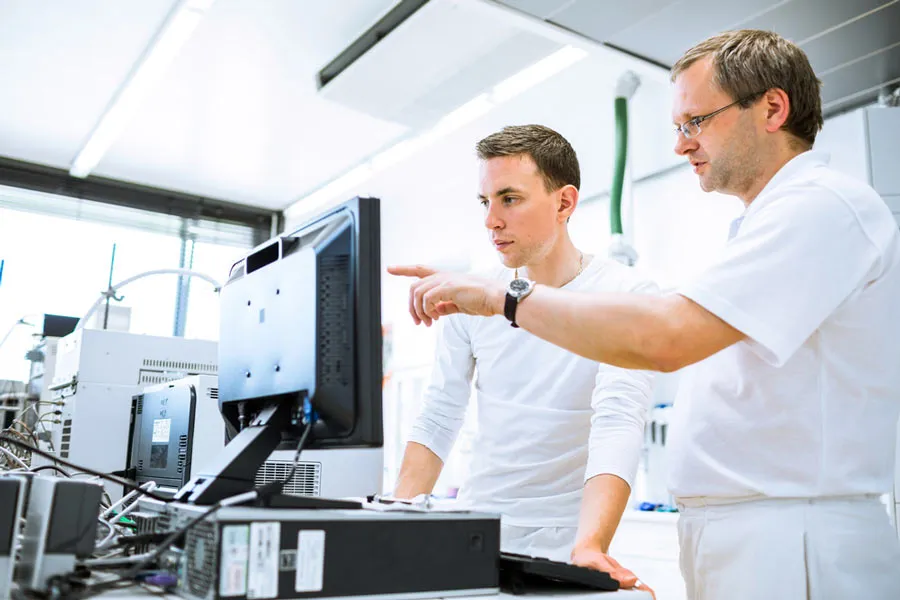
Garza said that developing synergies with institutions in other countries is part of his vision as Tec President.
“I always mention that I want to focus on the” three ‘i’s “: the i for innovation, the i for investigation, and the i for internationalization.
“Internationalization has helped us a lot in terms of our goals for education, research, strategy, vision, and operation, and it has also been an inspiration. For example, 60% of our students finish their degree having had an international experience,” he said.
He highlighted that although Tec students represent less than 1% of Mexican students in higher education, the university provides more than 20% of opportunities for student study abroad.
“For us, it has been very beneficial to interact with other universities, because we can also see how they work and share best practices.
“With the help of these partnerships, we are also investigating how we can continue to foster a multicultural environment now that we have restrictions on physical mobility for students, with internationalization from home,” he added.

THE TEC’S INTERNATIONALIZATION EFFORTS
Garza said that the institution is focusing its efforts on innovating in education on a global scale, as it does through the International Conference on Educational Innovation that it holds every year.
“Through this conference, we have found partners around the world. Several rectors who are members of the Universitas 21 network have taken part in these conferences,” he commented.
He highlighted that the Tec has signed research agreements with about 20 top universities around the world, which he considers beneficial for the institution’s research agenda to generate a bigger impact.
“This also helps us with our strategy and vision: every year we make trips to different countries; these represent opportunities to be able to talk with leaders, learn about different operational models and strategies, and also be able to find inspiration.”
Garza pointed out that the traditional educational model taught in one place and operated by a single institution could evolve and expand with the help of partnerships between universities around the world.
YOU’LL DEFINITELY WANT TO READ THIS TOO:

